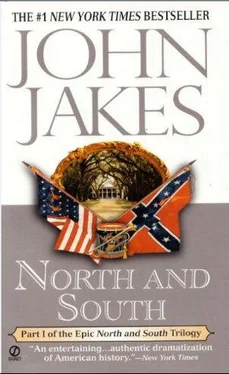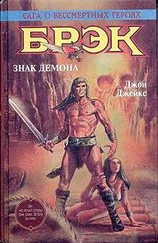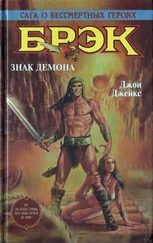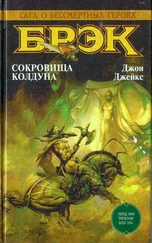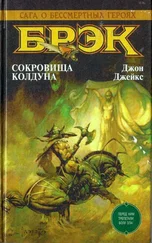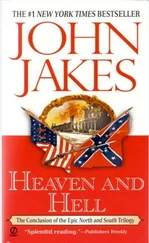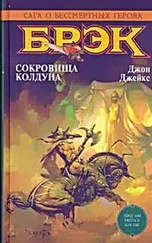Джон Джейкс - North and South
Здесь есть возможность читать онлайн «Джон Джейкс - North and South» весь текст электронной книги совершенно бесплатно (целиком полную версию без сокращений). В некоторых случаях можно слушать аудио, скачать через торрент в формате fb2 и присутствует краткое содержание. Жанр: Исторические приключения, на английском языке. Описание произведения, (предисловие) а так же отзывы посетителей доступны на портале библиотеки ЛибКат.
- Название:North and South
- Автор:
- Жанр:
- Год:неизвестен
- ISBN:нет данных
- Рейтинг книги:5 / 5. Голосов: 1
-
Избранное:Добавить в избранное
- Отзывы:
-
Ваша оценка:
- 100
- 1
- 2
- 3
- 4
- 5
North and South: краткое содержание, описание и аннотация
Предлагаем к чтению аннотацию, описание, краткое содержание или предисловие (зависит от того, что написал сам автор книги «North and South»). Если вы не нашли необходимую информацию о книге — напишите в комментариях, мы постараемся отыскать её.
North and South — читать онлайн бесплатно полную книгу (весь текст) целиком
Ниже представлен текст книги, разбитый по страницам. Система сохранения места последней прочитанной страницы, позволяет с удобством читать онлайн бесплатно книгу «North and South», без необходимости каждый раз заново искать на чём Вы остановились. Поставьте закладку, и сможете в любой момент перейти на страницу, на которой закончили чтение.
Интервал:
Закладка:
He was exalted by thoughts of the coming conflict. Blood would run. Thousands and thousands would die. He rejoiced at this long-overdue chance to display his skills and earn the reputation — the glory — he knew to be his just portion.
And along the way he might be able to settle some old scores.
He would never get over botching the attempt in Texas. And now that damned Charles Main had defected to the South like so many other dishonorable soldiers whose actions made them deserving of a firing squad. But war had a curious way of twisting fates and fortunes. Who knew but what this one might bring him an opportunity to strike directly at the Mains. He mustn't forget they were somehow connected with a woman attempting to pass herself off as white, a woman who was not only a nigger but the offspring of a New Orleans whore.
As for Billy Hazard, surely he would be able to keep track of him. The young engineering officer was remaining on active duty. Bent had already ascertained that at the adjutant general's office. He'd get the lot of them, both families. He believed that because of another conviction he held — neither the Mains nor the Hazards would suspect that his desire for revenge could survive in the chaos that was surely ahead. Their stupidity was his trump card.
He finished his whiskey and called for another. He admired his uniform in the mirror behind the bar. He became aware of two men next to him who were engaged in loud conversation. One was arguing that a reconstruction plan should be prepared and publicized immediately, to encourage the South to return to the fold.
Bent slammed his glass on the bar. "If you believe that, sir, you belong on the other side of the Potomac."
The man was eager to debate. "I take issue, sir. The Lord Jesus Christ Himself stated that mercy —''
"No mercy," Bent interrupted. "No quarter. Never."
A few listeners cheered. The argumentative man took note of the unpopularity of his view and said no more.
Bent preened in front of the mirror. What a splendid day this had been. A man was lucky to live in a time of war.
War . Was there a sweeter, more delicious word in all of the English language? He felt so fine that he left a whole twenty-five cents for the barman.
He strutted out of the hotel, enjoying one of his favorite thoughts. Bent and Bonaparte began with the same letter. It was not a trivial coincidence. By God, no. It had immense historical significance. Before long the world would appreciate that.
A few days later, in the Blue Ridge foothills near Harpers Ferry, Virgilia visited Grady's unmarked grave.
It was a sweet, warm April afternoon. She had driven from the railway station in a hired buggy, which she had pulled to the side of the dirt road at the foot of a low hill covered with maples. She had tied the horse to a branch, walked halfway up, and dropped to her knees beside a mound surrounded by trees.
"Oh, Grady. Grady."
She fell forward on the new grass covering the mound. She had dug the grave, filled it, and piled up the earth with her own hands. In the confusion just prior to Brown's capture, she had crept into Harpers Ferry, located Grady's body, and hidden it. Not long afterward, one of the other conspirators, a Negro woman, had helped her move it here, where no one would dig it up and desecrate it.
Brown was gone now, his dream of a glorious revolt dying with him on the gallows. Grady was gone too. But their blood-price had bought a great gift: the war. Fighting had not yet started, but she was convinced it soon would. She reveled in the thought as she lay with her thighs and breasts crushed against the mound, as if it were Grady's living flesh.
She imagined rows and rows of Southern corpses with heads gone, stumps of arms gushing blood, holes where the genitals had been. She moaned and trembled as she thought of the coming epiphany of her cause. There would be work for her, bloody work others were too scrupulous or fainthearted to perform.
But she would perform it. She would answer the call of her own hatred of those who enslaved others, those who enslaved beautiful black men. She had left her family, insufferable moralizing prigs, forever. She had cut herself off from humanity and now lived solely for her memories and one companion:
Death, who was her friend and God's righteous instrument.
At Mont Royal, shadows seemed longer, the spring nights darker, than ever before. Orry had no interest in planting and husbanding a rice crop, nor had he any confidence in Jeff Davis's announced plan to use cotton to win European recognition of the Confederacy. In his opinion, Davis was a damn fool. The European market was glutted with cotton. Who would care if the South withheld its crop?
A strange impulse for change was stirring in Orry these days. He was restless in the familiar rooms, the old grooves. Only Madeline's presence and the easy way she fitted herself into his life made existence bearable.
Confusion and doubt seemed to be his lot. One night, sleepless, he went browsing in the library. He pulled out a volume he hadn't looked at in years. It was Notes on the State of Virginia , the only book ever written by Thomas Jefferson.
He hitched up his nightshirt and sat down to read awhile. Presently he reached a line that leaped out because it had been underscored with a pen. Three words, Amen and amen , had been inked on the margin beside it. The line read:
"Indeed I tremble for my country when I reflect that God is just; that his justice cannot sleep forever."
Jefferson, a Southerner and a slave owner, had been writing about slavery. What confounded Orry was the marginal notation. He had studied enough old plantation ledgers to recognize the handwriting, it was his father's.
The three words suggested that Tillet, so staunch a defender of slavery in public, had actually harbored doubts about it. Doubts he had kept hidden all his life. The old sinner, Orry thought with a surge of sympathy. Well, what decent man wouldn't harbor doubts — especially now that the consequences were so cruelly apparent?
Encountering Tillet's doubts only enhanced his own, which were profound. They embraced both the history of the Mains and that of every man who lived by, and therefore tolerated, the peculiar institution. Ever after, Orry regretted that he had given in to the impulse to take that particular book off the shelf.
A few minutes after sunrise one misty morning, Orry and Charles went riding on the plantation. Pale clouds stirred around them as they galloped, phantom men on phantom horses in a landscape of gray shot through with smoky orange. Beneath the layers of mist, the flooded fields shone like polished metal.
A file of slaves trudging along a check bank loomed on the right. The driver turned to offer a laconic salute to the master. But even at a distance, Orry detected a certain mockery in the black man's bearing, a certain resentment on his face.
Soon a swirl of mist hid the spectral column of men. But other parties of workmen were out that morning, and Orry realized he had been riding among them without taking note of their presence. They simply existed, like trunk gates or the kitchen building. They were items of property.
He thought again of Jefferson's book. Items of property. That was it, wasn't it? The reason the North, the world, perhaps even the Lord Himself, was calling the South to judgment —
"Wade Hampton's raising a mounted legion," Charles called suddenly. "I'm reporting for duty in two weeks."
"I didn't know."
"I was only notified yesterday. I'm tired of waiting and fretting. I want to do what I was trained to do." He leaped his horse over a ditch. His hair, badly in need of barbering, bobbed and danced at the nape of his neck. "It should be a glorious fight."
The remark made Orry realize how great a gulf separated them. It was caused by more than a difference in their ages. Even after seeing action in Texas, Charles hadn't lost his love of brawling.
Читать дальшеИнтервал:
Закладка:
Похожие книги на «North and South»
Представляем Вашему вниманию похожие книги на «North and South» списком для выбора. Мы отобрали схожую по названию и смыслу литературу в надежде предоставить читателям больше вариантов отыскать новые, интересные, ещё непрочитанные произведения.
Обсуждение, отзывы о книге «North and South» и просто собственные мнения читателей. Оставьте ваши комментарии, напишите, что Вы думаете о произведении, его смысле или главных героях. Укажите что конкретно понравилось, а что нет, и почему Вы так считаете.
